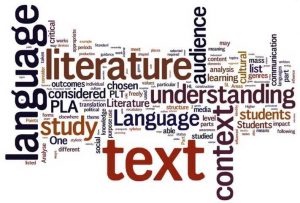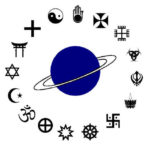Literature and Language True or False Quiz Questions with Explanation

Word Nerd: True or False Quiz Answers with Explanation
You love words. You adore alliteration. And you chortle at the thought of nailing this quiz.
1. The language of the Rom, or Gypsy, people comes from India.
True or False?
Answer: True
Romany is an Indo-Aryan language. The Rom, or Gypsy, people migrated from India about a thousand years ago.
2. SMS is a signal that means “Help!”
True or False?
Answer: False
SMS means short message service. It is a technology that allows text messages to be sent by cell phone. SOS is a radio signal for help.
3. English is related to German.
True or False?
Answer: True
German, English, and even Hindi are all part of a great family of languages called Indo-European. They descended from a common ancestor many thousands of years ago.
4. A bespoke piece of clothing is custom-made.
True or False?
Answer: True
A bespoke piece of clothing is one specially ordered from a tailor or designer. The word “bespoke” means that it is “spoken for” in advance.
5. The words chortle and galumph were both invented by Lewis Carroll.
True or False?
Answer: True
Chortle and galumph were first used in Carroll’s 1871 nonsense poem Jabberwocky. They are both portmanteau words—that is, new words made up by combining parts of other words.
6. “Empyreal” means something related to an empire.
True or False?
Answer: False
“Imperial” is related to “empire.” “Empyreal” comes from the Greek meaning “surrounded by fire.” It refers to the highest heaven, in the classical conception of the universe.
7. Rhode Island, the American state, is named for the Greek island of Rhodes.
True or False?
Answer: False
Rhode Island comes from the Dutch Roodt Eyland, which means Red Island, for the color of the earth there.
8. Alliteration is the use of repeated sounds for poetic effect.
True or False?
Answer: True
Alliteration is the use of the same sound at the beginning of neighboring words in a sentence or phrase, such as Shakespeare’s “Full fathom five thy father lies.”
9. Sanskrit has never had a formal grammar.
True or False?
Answer: False
Panini, a linguist, wrote a formal grammar of Sanskrit in the 4th century BCE. Many grammars have followed his.
Literary Favorites: True or False Quiz Answers with Explanation
Love literature? This quiz sorts out the truth about beloved authors and stories, old and new.
10. The Bloomsbury group was a football squad.
True or Fals?
Answer: False
The Bloomsbury group was an informal circle of British intellectuals. Among its members were economist John Maynard Keynes, biographer Lytton Strachey, and novelists E.M. Forster and Virginia Woolf.
11. The poet W. B. Yeats was from England.
True or False?
Answer: False
William Butler Yeats, famed as the poet of “Easter, 1916” and “The Second Coming,” was born in Dublin, Ireland, and spent his life in that country.
12. Kenyan author Ngugi wa Thiong’o always writes in English.
True or False?
Answer: False
Ngugi wa Thiongo has written in English, but he began to write only in his native Kikuyu in the 1990s. His 2004 novel Wizard of the Crow was written in Kikuyu and then translated into English.
13. Agatha Christie wrote only novels.
True or False?
Answer: False
Agatha Christie wrote many novels but also wrote plays. The latter include The Mousetrap (1952), which set a world record for the longest continuous run at one theater, and Witness for the Prosecution (1953; film, 1957).
14. The Sound and the Fury is a sonnet by William Shakespeare.
True or False?
Answer: False
The Sound and the Fury (1929) is a novel by American writer William Faulkner. Its title is a quote from a monologue in Shakespeare’s Macbeth.
15. Jeppe Aakjær was a noted Danish explorer.
True or False?
Answer: False
A poet and novelist, Jeppe Aakjær (1866–1930) was a leading exponent of Danish regional literature. He also promoted the literature of social consciousness.
16. The poet Robert Burns grew up in a wealthy English household.
True or False?
Answer: False
Robert Burns, the Scottish poet, was the child of poor tenant farmers. He worked hard on the farm by day and read Shakespeare, Milton, and other writers at night, teaching himself to be a poet.
17. A ruba’i is the same as a sonnet.
True or False?
Answer: False
The Arabic verse form called a ruba’i (plural rubaiyat) is made up of four lines—in English, a quatrain. Sonnets have 14 lines.
18. No South African has won a Nobel Prize in literature.
True or False?
Answer: False
In 1991 the novelist and short-story writer Nadine Gordimer became the first South African to win the Nobel Prize for literature. J. M. Coetzee won in 2003.
19. The Brothers Grimm, authors of fairy tales such as “Hansel and Gretel,” were from Germany.
True or False?
Answer: True
Jacob and Wilhelm Grimm were German academics who collected fairy tales, among them “Hansel and Gretel” and “Snow White.”
Read: History True or False and Multiple Choice Online Quiz Questions


